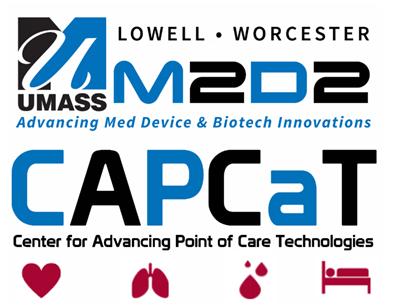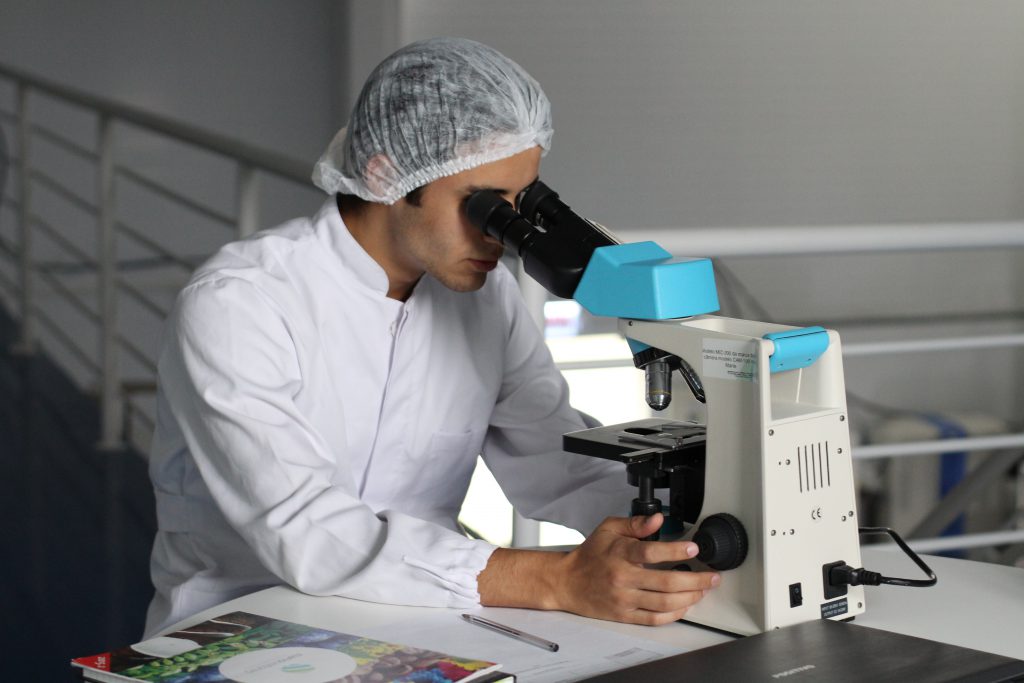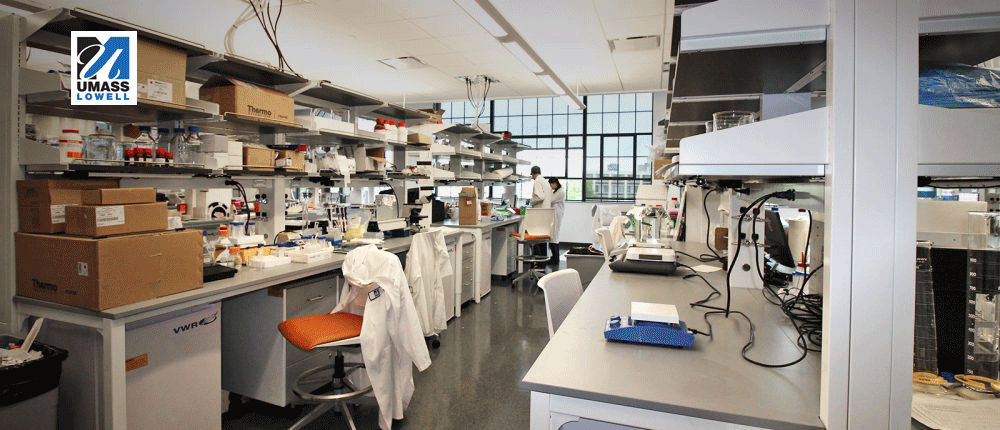The Center for Advancing Point of Care Technologies (CAPCaT) is actively searching for point-of-care technologies that can be applied to heart, lung, blood or sleep disorders. Entrepreneurs (from anywhere in the world) whose inventions are approaching the clinical testing phase are encouraged to apply for point-of-care grant awards of up to $100,000. The Expression of Interest deadline is Monday, March 2 at 4:59 pm EST.
Complementary and integrative health approaches within these disease areas are welcomed to apply. CAPCaT plans to fund up to six point-of-care grant awards of up to $100,000 over 12 months, with at least one award recognizing complementary or integrative health tech.
Learn more about CAPCaT’s point-of-care tech grant awards.
What is CAPCaT?

Based at UMass Medical School and UMass Lowell, CAPCaT was established with support from the National Heart, Lung, and Blood Institute (NHLBI) as well as the National Center for Complementary and Integrative Health (NCCIH). Their core mission is to support development, deployment, and testing of promising “late-stage” point of care technologies that can be rapidly deployed to enhance the diagnosis, monitoring, management, and prevention of heart, lung, blood, or sleep disorders (NHLBI), with an additional interest in projects that incorporate complementary and integrative health approaches (NCCIH).
CAPCaT is a member of the NIH Point of Care Technologies Research Network (POCTRN), which also includes centers at John Hopkins University and Northwestern University, as well as an Atlanta center (ACME-POCT) that leverages resources at Emory University’s hospitals, Children’s Healthcare of Atlanta, and Georgia Tech.

CAPCaT assists inventors developing new technologies and medical devices designed to help patients with these conditions manage their well-being wherever they are. The goal is to improve quality of life and reduce the time patients spend in the hospital.
CAPCaT’s Connection to M2D2
Supported by a $7.9 million grant from the NIH, CAPCaT is affiliated with the Massachusetts Medical Device Development Center (M2D2), operated by UMass Lowell and UMass Medical School. M2D2 helps biotech and medical-device startups bridge the gap between idea and market. CAPCaT is driven by the talent and aspirations of participating entrepreneurs; the expertise of scientists, business developers and legal analysts; and the resources available at UMass Lowell and UMass Medical School in collaboration with industry partners.
M2D2’s support of medical-device startups in Massachusetts has contributed $42 million in direct economic impact with a total positive effect of $75 million, according to the UMass Donahue Institute. Expanding CAPCaT is expected to increase this impact.
